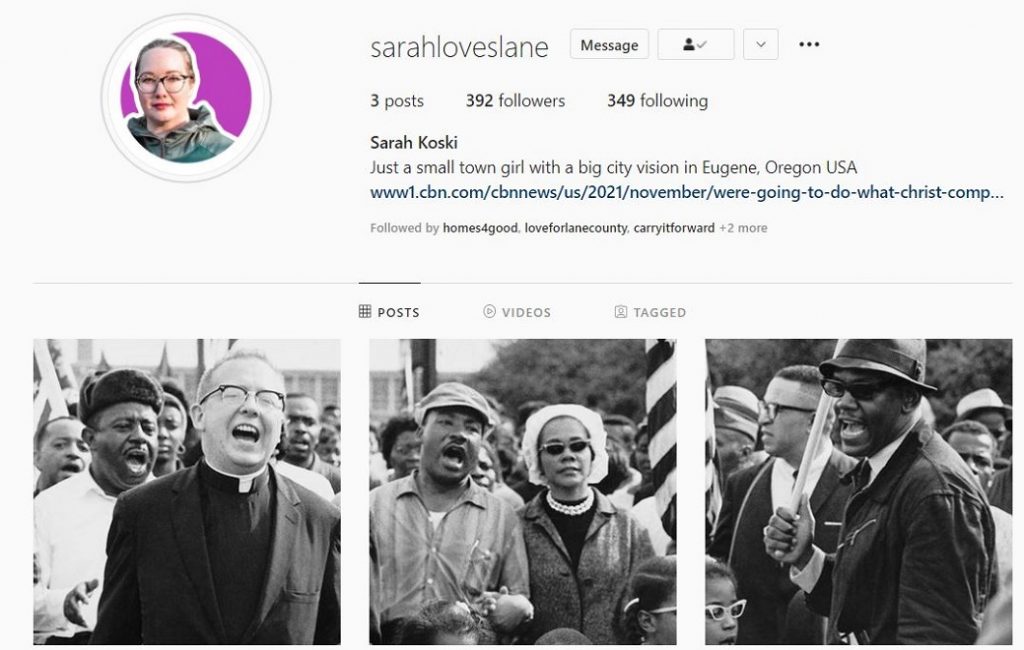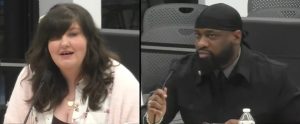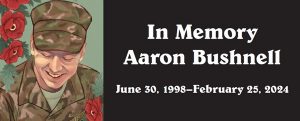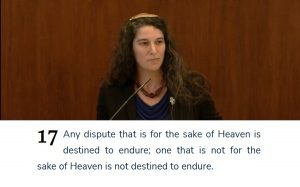‘No More Lost Limbs’ asks for your help in preventing amputations
5 min read
To contribute to the No More Lost Limbs campaign, reach out to instagram.com/sarahloveslane.
Heather Sielicki and Sarah Koski are launching a new program: “No More Lost Limbs.” At the City Club, Heather Sielicki.
[00:00:08] Heather Sielicki: I got involved with this issue about 10 years ago, I knew that homelessness was an issue here in the community, but I hadn’t really delved into it until there was a camp that moved into my neighborhood. So I went over and I talked to the people there and what I saw is really people who had some challenges who were really being neglected by being out there on their own. And I wondered, how did we get here? And I went and I talked to the government, to try to find out, what can we do here? And I learned that the way that the city deals with homelessness is really on a complaint-driven model, which is, which was how it was handled at the time, Public Works and Parks and Rec. And you have all these different departments and that they weren’t really talking to each other. They were all saying, ‘Well, we’re the city, we do streets and sewers and signage. We’re not a human services agency.’ And then I went and I talked to the county and I said, what’s going on? We have thousands of people on the street. And they said, ‘ We’re not really set up for that.’ They really weren’t set up to deal with these cascading system collapses.
Thank you for supporting
local citizen journalism
[00:01:10] And here in our community, back before 2020, we had very few disasters. So you didn’t have a lot of agencies that were used to working together in collaborative ways. So it just made things very complicated and you have a lot of duplicated services and silo-ing, and it was really challenging. So I went to the emergency manager. I was like, ‘We know the government doesn’t have this, faith, business, nonprofit doesn’t have this. This is the disaster I’ve been training for as a Community Emergency Response Team. When are we going to call this the disaster that it is?‘
[00:01:43] We need to scale up to protect the unsheltered. What we found during the pandemic and the fires is, new people are getting unhoused all the time. They’re in Oregon right now. They say there are 11,000 people who are probably going to be evicted this month. So we have all these new people entering into unsheltered realities. And we just don’t have enough services.
[00:02:05] Sarah Koski: I have the great honor as not only being executive director at Love for Lane County, I’m chair of the Lane County COAD, which is Community Organizations Active in Disaster. I had a great conversation with Heather Sielicki, my dear friend, also part of the COAD and a Human Rights Commissioner, and Heather started explaining to me how many amputations were going on in this town. Heather had made mention that those who are not protected from the elements were losing digits, toes, fingers, and it did something to me because I was like, man, I have all my 10 fingers, all my 10 toes. When I get a cold, I turn up the heat. I have beautiful Pendleton blankets at my home. And just the thought of not having safe winter boots and having to lose a toe. And it’s preventable. Right. It’s highly preventable.
[00:03:05] So what happens next to me is one Friday I’m at work and I’m not feeling well. And I call a friend and I ended up in the emergency room and the gentleman next to me, you can tell he’s the veteran. He has his veteran hat on. There are so many parts of his body that have been amputated. Now it could have been war related. It could have been out in the elements, but seeing that for myself, regardless of what that was, I sat in that chair that, that medical table, the university district, and I called Heather and I was sick, but I called her and said, we gotta do something and we gotta do something now. And that was the birth of No More Lost Limbs.
[00:03:49] COAD is going to be launching a project called No More Lost Limbs, the goal being we were coming across some of the data of individuals who don’t have the right boots to don’t have the right gloves who are being amputated with fingers and toes. And we’re looking at ways to do some fundraising to get better boots, better warm weather or winter weather clothing out there so we don’t see as much amputations working with the mutual needs programs with that.
[00:04:18] And the premise is that if we can get donations or corporate support, see if we can get some donations or even monetary donations of boots, warm winter clothes. I don’t want to see any lost limbs this winter, and we can’t guarantee that that’s not going to happen, but if this is one of the most preventable and obvious things that we can do to support our community, that’s what we’re going to do.
[00:04:41] John Q: To get involved, contact Sarah.
[00:04:43] Sarah Koski: My cell is 541-731-8705. I’m active on Instagram. SarahLovesLane, or you could reach out to me via email. My first name is sarah@loveforlanecounty.org, all spelled out.
[00:05:04] The COAD is such a tight-knit group of organizations, including churches, businesses, nonprofits, where if we have projects like this, we can reach out to our COAD network and people can voluntarily get involved. I already just brought it to the Lane Preparedness Coalition, we’re going to reach out to our church partners through Love for Lane County as well, and just get the word out, even just the education that, I mean, we don’t even think about it, about how heat transfers when you’re outdoors in the elements, you lose heat, even just the fact of using newspaper to protect you, that helps you so much.
[00:05:44] And the amount of different things that people experience out there. Egan Warming Center is just about to start preparing to activate. It’s a real deal. And if we look at the forecasting, it’s going to be a very significant cold season and small kind gestures just to help those protects themselves who are out in the elements— let’s get it done. If that means one less Starbucks coffee, if it means one less trip to the movie, if it means that I can help support our community and those who are most vulnerable.
[00:06:17] This humanitarian crisis is something that we have to take the blinders off, take our comfortability off and really recognize it’s in town. And if we look at the migrant crisis over in the Mediterranean and the work that the Doctors Without Borders are doing, or the SOS ships, right—migratory crises, access to food, access to health care, all of these things, they’re getting covered by the International Committee, Red Cross, Red Crescent. That same crisis is here in our community, but we’re not seeing these domestic refugees as a humanitarian crisis. This is a humanitarian crisis in our own backyard. We have to get more people involved.




